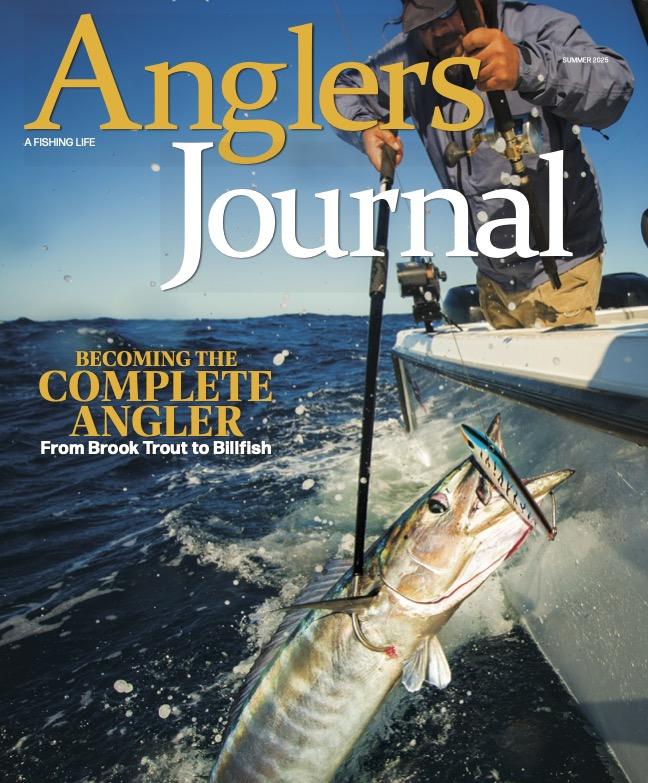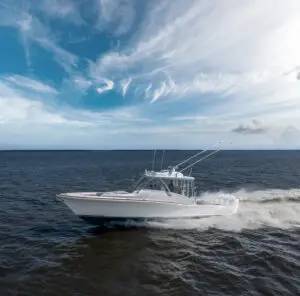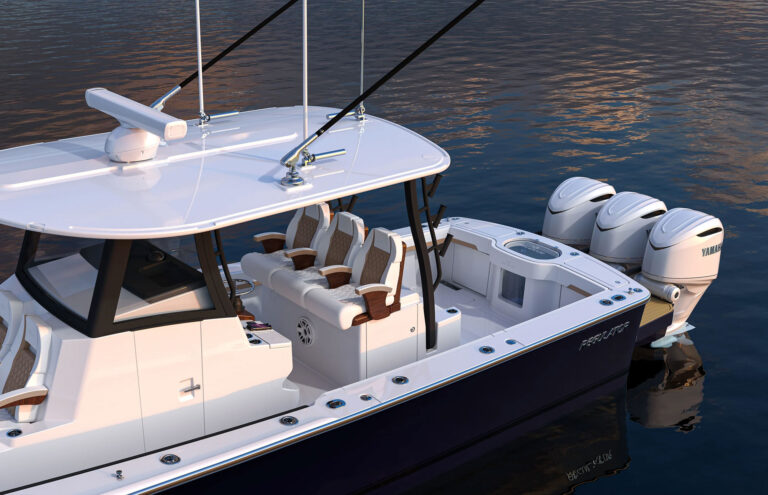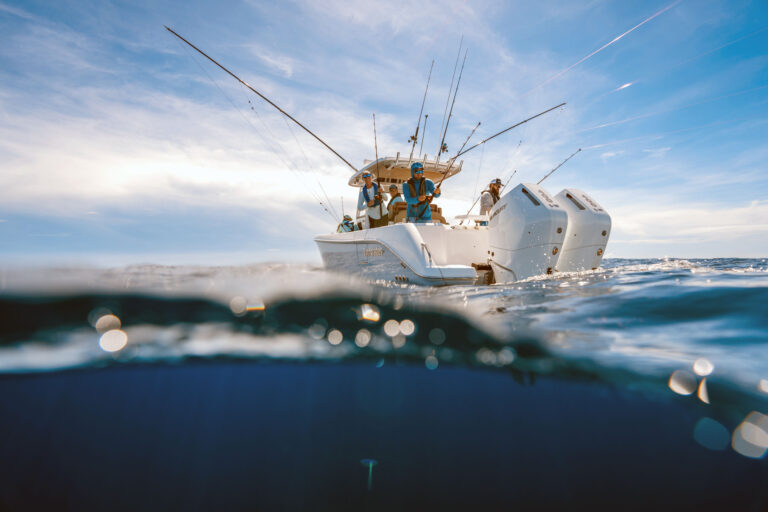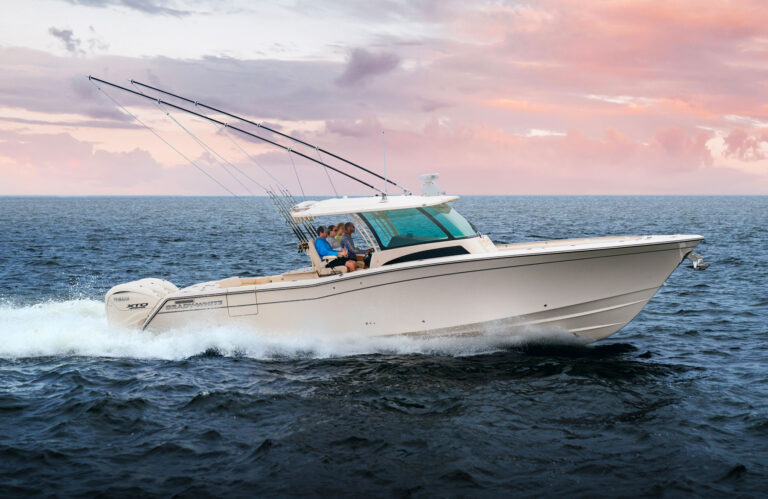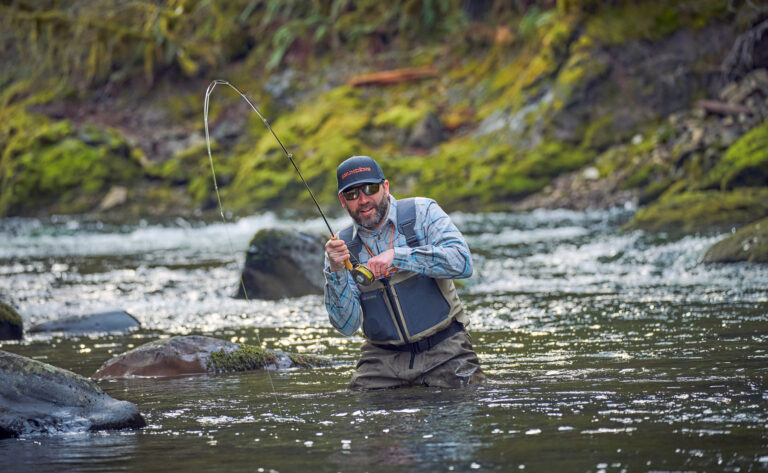“Lucky Skunk? F- that!”
I heard my boat’s name taken in vain. “Who’d want a skunk around?”
My son and I looked up from scrubbing the bloody deck and saw a sneering, sunburned man. “Well,” I responded, “you gotta co-op negative mojo. Make the skunk your own positive power.” The man’s face twisted into confusion. My son lifted a 10-pound coho salmon from the cooler.
For more than 15 years, this 16-foot skiff has been more than lucky; she’s been an easy-to-trailer, reliable means to the ocean, bays, rivers and lakes we love. My wife and I bought this 2001 Smoker Craft with a 4-stroke, 25-hp Mercury from a friend in 2008, for $6,200. I installed extra rod holders, downrigger mounts, a swim ladder (the kids insisted) and a 9.9-hp auxiliary trolling motor.
Smoker Craft, founded in 1921, claims to be the oldest family-owned boatbuilder still above water. Their Indiana plant produces a variety of riveted and welded models under several brands, including Starcraft and Starweld, and pontoons for Sunchaser and Sylvan. My Lodge Series skiff may be Midwest-made, but it swims comfortably in the Pacific Northwest, where most fishing boats are metal.
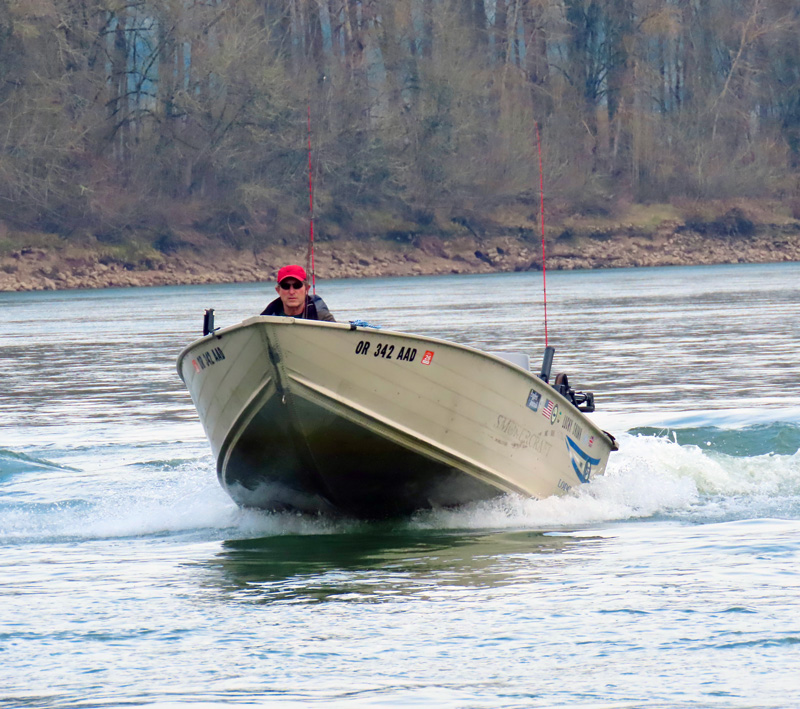
During the second World War, innovations in aluminum bonding used for aircraft manufacture set the stage for the marine revolution. Following the war, a surplus of skilled labor, material and machinery led aircraft manufacturers such as Grumman in New York and Boeing in Washington State to venture into watercraft. Unlike Grumman, Boeing never became a major producer of boats, but the industry’s influence led to a regional wave of aluminum builders. Aluminum boats are impervious to sunlight and moisture, and are stronger, lighter and typically less expensive than fiberglass. Admittedly, tin boats are less comfortable — they vibrate and are noisier and colder. I’ve had lines and gloves freeze to the deck. Their lightness can also make them less stable. Although never close to capsizing, I’ve certainly been tossed and blown around in big waves and wind.
Lucky Skunk and its trailer weigh about 700 pounds, and they’re easily towed behind my 4-
cylinder Honda Element, even over the Cascade Mountains, where we access deep reservoirs and lakes teeming with trout and kokanee. Our home is a couple of miles from the Willamette River in Independence, Oregon, and a little more than an hour drive to Portland, where we fish the
Willamette and Columbia rivers for smallmouth bass, shad, salmon and sturgeon. On a few occasions, sturgeon exceeding 200 pounds have towed Lucky Skunk down the river before surrendering to a photo and release. (See the Winter 2022 issue of Anglers Journal.)
If craving salt, we’re a 90-minute drive to Newport’s Yaquina Bay, where we set traps and haul in limits of Dungeness crab, jig around the jetties for rockfish and lingcod, or troll for fall-run coho and Chinook salmon.
I grew up in the Northeast, near Long Island Sound, and at 14, my first boat was a 16-foot plywood Eltro runabout that my father and I restored to a state of handsome, leaky service. The sound offered many calm, summer days, and we’d comfortably motor nine miles to the Middle Grounds for bluefish and porgies. Oregon’s Pacific coast is not so hospitable, but on very calm days, Lucky Skunk goes out to sea. Five miles is about my limit. Sea lions, porpoises and gray whales abound, and on one sunny afternoon, as we drifted with the engine off, enjoying a round of gin-and-tonics, a 40-foot gray whale swam directly at us, then dove under the hull. We stared over the side at the huge, pale form gliding through the clear, blue water, relieved and thrilled when it surfaced and spouted 20 yards beyond.
I’ve been tempted to trade up for a larger craft, maybe one with some shelter from the weather, but this little skiff fits in our garage, offers tremendous versatility, and is inexpensive to maintain and operate. We can zip around all day on 6 gallons of gas, though I carry an extra tank.
We’ve popped a few rivets, and it’s dinged up from beach landings and downrigger balls. The decals and wonky name letters the kids stuck on still make me chuckle. “The Lucky Skunk’s got soul,” my 25-year-old son likes to say. “It’s time we took her out again.”

